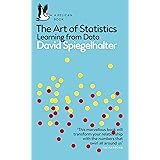AI in Delivery Management
AI in Delivery Management, AI is a fantastic tool for teaching computers and other robots to think as humans do and to solve problems in the same way.
It’s one of the most significant technological developments. At Dartmouth College, artificial intelligence was initially established as an area of study in 1956.
Since then, it has been incorporated into a wide range of sectors, beginning with the defense industry and extending to social media, supply chain management, real-time tracking systems, and many more.
Decoding artificial intelligence reveals that it combines machine learning, computer vision, and robotic process automation.
The power of AI to restructure and alter many fields is constantly developing, and the ecosystem for AI is making significant strides every day.
From the standpoint of the logistics sector, there is a significant emphasis on route optimization, multi-stop route planning, effective fleet management, and smooth last-mile tracking.
Nearly half of organizations, or 47%, have implemented AI into at least one of their processes, according to a McKinsey study.
How managers carry out their duties is revolutionized by artificial intelligence.
AI machines assist Chief Supply Chain Officers (CSCOs) in the logistics industry by providing them with real-time visual representations of their supply chains that help them identify areas for development.
Predictive analysis is a significant use of AI in logistics management and transportation automation. To do this, the best course of action must be determined using programming tools.
Large volumes of data are analyzed by AI systems to provide insightful data that helps firms improve efficiency, optimize operations, and grow.
Let’s look more closely at three ways AI is assisting in the development of more effective delivery management systems.
Best ML Project with Dataset and Source Code »
1. Route Optimisation
Route optimization is one of the biggest improvements that AI has made to logistics. In industries like courier services, e-commerce, retail, transportation, and quick-service restaurants, AI-powered logistics technologies are frequently used.
They are essential in handling delivery and figuring out the best routes. These platforms employ cutting-edge routing algorithms to successfully plan the optimal routes for drivers and address tricky logistical issues.
Logistics managers are helped by AI technology while planning and modifying delivery routes. The primary objectives are to streamline operations, automate procedures, cut down on delivery expenses, and enhance the general client experience.
2. Automatic Order Assignment
An essential step in logistics automation is order allocation, which entails distributing items in accordance with route planning. Order allocation is the process of arranging orders from various sources in the most effective way feasible.
Order allocation has undergone a revolution thanks to AI. 90% of orders are now assigned automatically as a result of this amazing move toward automation, greatly lowering the requirement for manual involvement.
AI has also greatly aided inventory management. Previously, human error was a major factor in processes including inspection, selection, and inventory facilitation, which contributed to around 20% of the errors.
These procedures have, however, been greatly enhanced by the use of AI robots and scanners, resulting in on-time deliveries and more precise operations.
3. ETA Estimates
For efficient delivery management, the estimated time of arrival (ETA) calculation is essential.
In the logistics sector, a number of technologies, such as predictive analysis, are employed to calculate the ETA. Data generation and analysis are crucial steps in this process.
The delivery path must be planned in order to calculate the ETA. Reliable logistics software automatically modifies the ETA and notifies the client if anything changes, such as when the customer requests an alternative delivery time or when there are traffic issues.
In order to ensure that drivers travel effectively in reaction to these changes, it also offers rerouting alternatives.
Conclusion
Companies are revolutionizing how they plan, develop, and carry out their operations, demonstrating the transformational impact of AI in the logistics sector.
Businesses are actively integrating innovative technology into their daily operations as they work to maintain their lead in a market that is continually shifting.
Beyond these three crucial areas, businesses are now looking into the possibilities of AI in industries like retail, wholesale, and fulfillment warehouses, where automated forklifts and conveyor belts are taking the place of manual ones.
Additionally, the incorporation of automatic fleets is a noteworthy effort to lessen driver workload and reduce risks associated with the transportation of commodities.
With AI driving innovation in a number of logistics-related areas, we can anticipate ongoing developments and enhancements that will transform the sector for years to come.
Machine Learning Archives – Data Science Tutorials


